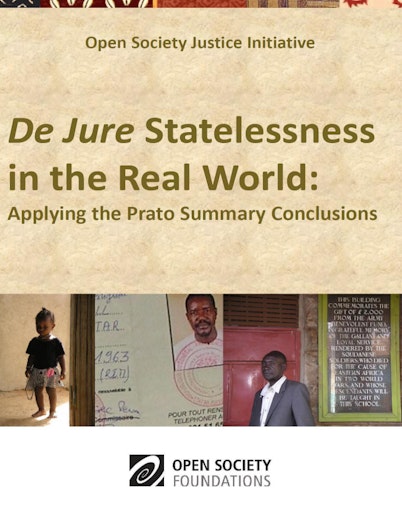De Jure Statelessness in the Real World: Applying the Prato Summary Conclusions
This Open Society Justice Initiative paper examines the definition of a stateless person under international law and the implications this definition has for victims of statelessness around the world.
In May 2010, a group of experts met in Prato, Italy, to discuss the definition of a stateless person under international law. The meeting was organized by the United Nations High Commissioner for Refugees (UNHCR), and addressed both the interpretation of the definition of a de jure stateless person under Article 1(1) of the 1954 Convention Relating to the Status of Stateless Persons, and more generally the definition of a de facto stateless person. The summary conclusions of the meeting are available from the UNHCR website.
De Jure Statelessness in the Real World: Applying the Prato Summary Conclusions aims to show how the Prato Summary Conclusions apply to stateless persons around the world. The paper demonstrates that most stateless populations that the Justice Initiative works with have links with only one state—the state where they were born and physically reside.
In accordance with the Prato Summary Conclusions, the Justice Initiative considers these populations to be de jure stateless on the basis that the states in question do not consider these resident populations as their nationals. In fact, a majority of the world’s stateless people likely fall into this category, as illustrated by the numerous examples set forth in the paper.
Topics
- Climate Justice
- Digital Rights and Fair Elections
- Discrimination and Racial Justice
- International Crimes
